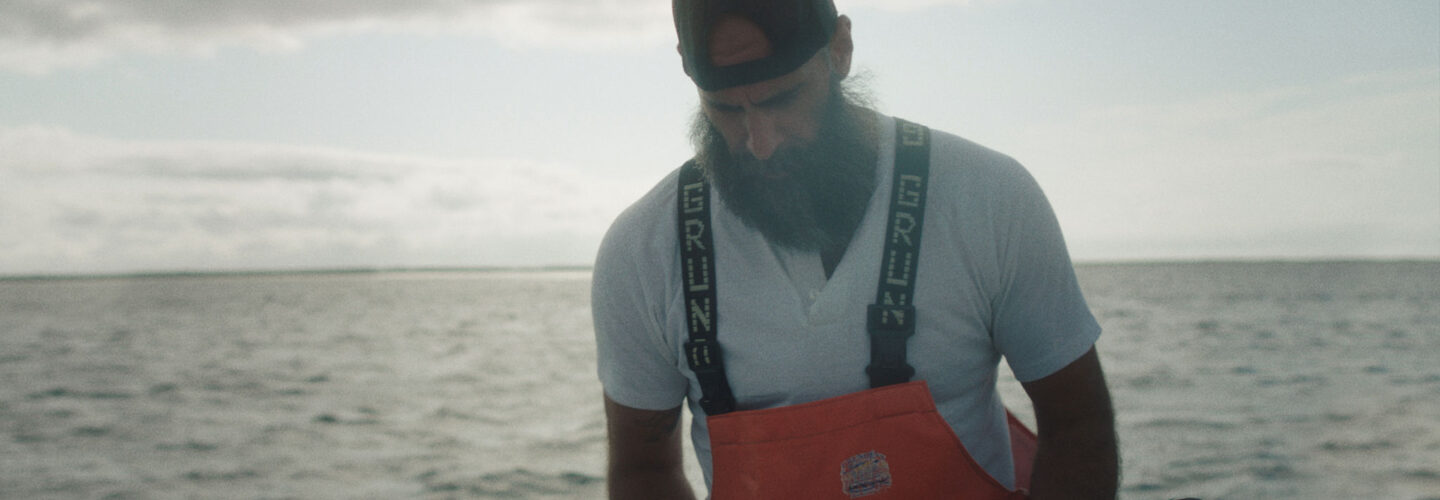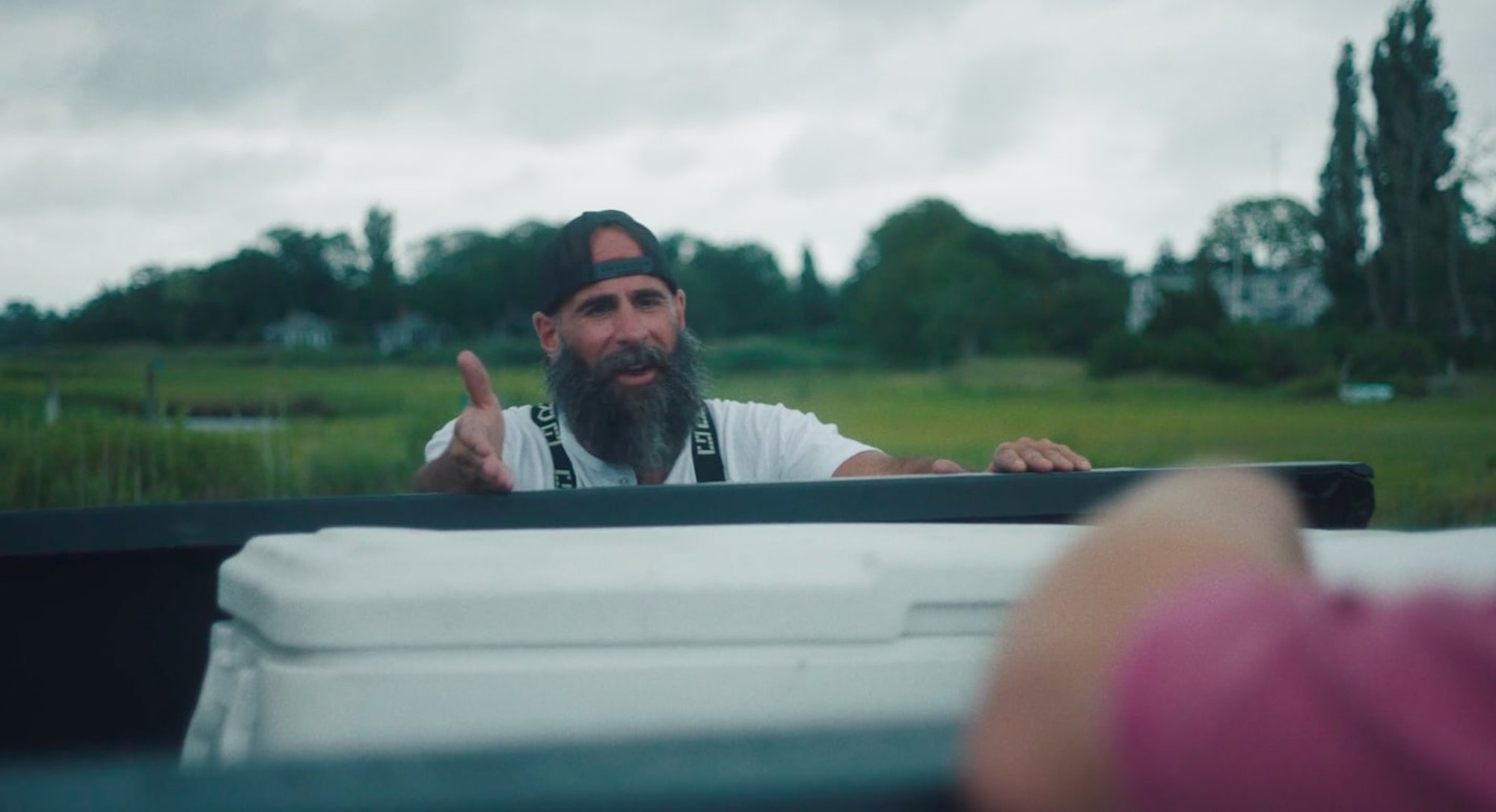
With a full lockdown beard, Greg Vrotsos looks totally transformed as a Cape Cod fisherman in Fish from Eli Powers (last seen on DN with his spellbinding peculiar miracle short Holy Moses). He gives a powerful, bruising yet bruised performance here as a man who has to come to terms with something he would much rather put off. Capturing both the joys of the morning catch – replete with dappling sunlight and a gorgeous seaside panorama – and the local quirks of the Massachusetts peninsula’s characters, the film excels both in its specific locale as well as its universal portrayal of grief. We sat down with Powers ahead of today’s online premiere to talk about his hometown, finding the right fish in a semi-secretive way, filming on a moving boat and creating the spare guitar soundtrack.
The film is set in your hometown of Cape Cod, tell me about the kind of characters you can meet there.
When I tell people I’m from Cape Cod, they always roll their eyes and assume I’m wearing boat shoes and hanging out with the Kennedys. They have this picture postcard perception of what the place is but it really is a strange environment. It’s essentially a sandbar, a peninsula that you can only reach by going over these bridges. I’m out on one of the furthermost points of the East Coast. It’s full of characters because essentially, the whole offseason is in preparation for the tourist season, so there’s a lot going on here that people wouldn’t normally expect.
Even in preparation for this short I had to humble myself, get involved with the fishing community and talk to people I wouldn’t normally rub shoulders with. Creating this was an experience in and of itself.
How did you make it authentic? Did you shadow people actually fishing?
I didn’t go out fishing. But I looked up someone I knew from high school who is a fisherman now. I went to his house and hung out with him for an afternoon and read him the entire script, sentence by sentence. That was a funny experience. I was reading the beginning with this argument between the two fishermen with a lot of jargon and he was telling me which lines are realistic and which aren’t. But by the end where he’s looking at photos of his father, he’s going: “Yeah, that’s realistic.” He not only authenticated this fishing jargon but even the emotional connection by the end of it, which I thought was kind of funny.
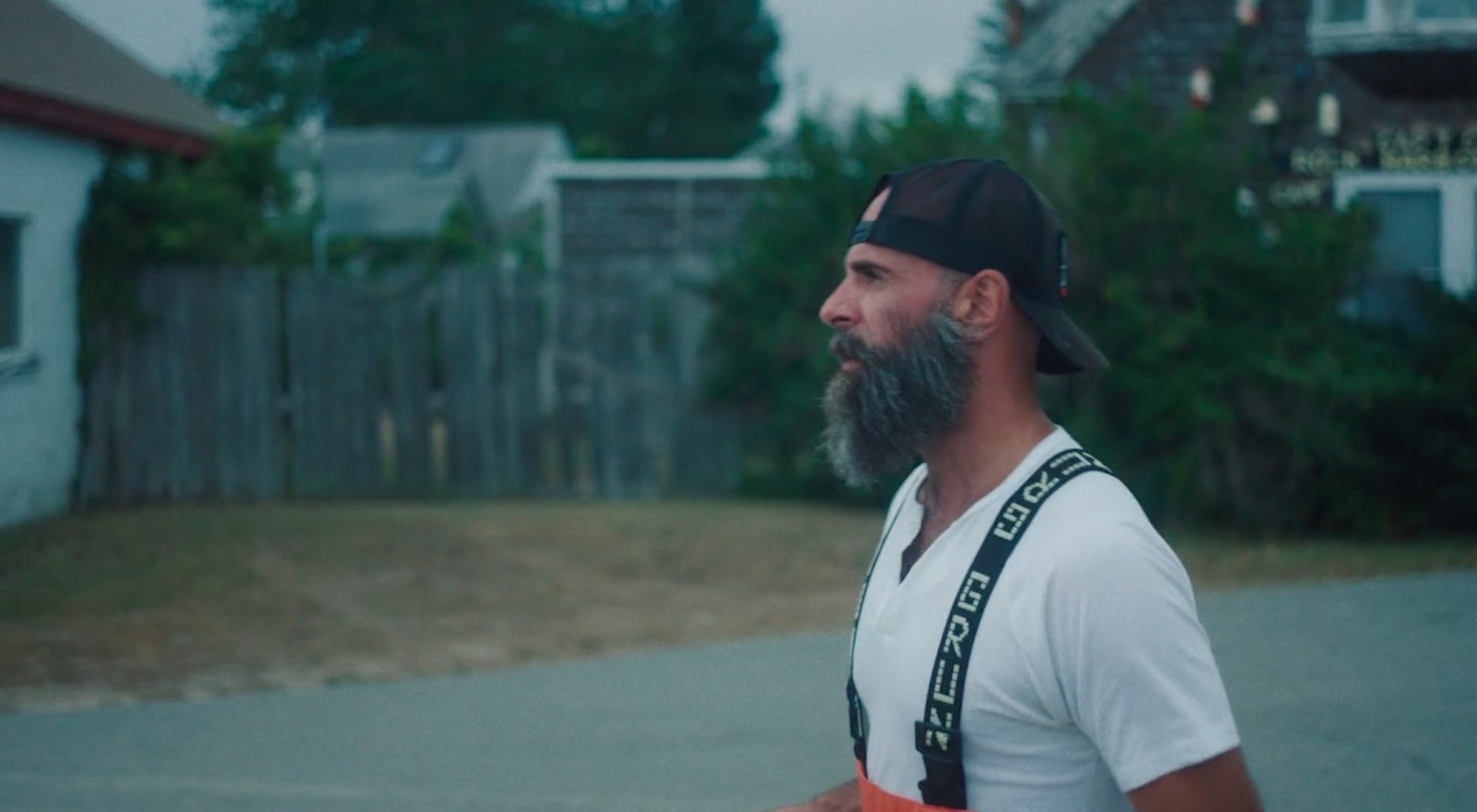
Did you actually have to catch the striper fish before filming?
That was tough: a day before filming we still didn’t have it as there was a striped bass shortage. We ended up getting it on the side. I don’t think they were supposed to sell it to us.
The ocean is unpredictable. It doesn’t always do what you want it to do.
I really liked the way that you caught those opening scenes. What were the challenges of filming on the open water?
We had to wake up early. I am not good at waking up early but I did it for the art. We had one boat with our cast on it and another boat with our camera and sound. It was such a pain because we had a rig on the fishing rod and the weight kept going under the water. But we needed the boat to be facing a certain way so we could have it backlit by the sunrise so it was like a dance. The ocean is unpredictable. It doesn’t always do what you want it to do.
Halfway through, while we were out there, I was directing from the monitor from one boat and I looked down and realised that the water in our boat was up to my knees. We were actually sinking! I thought we needed to go over to the other boat and hand them the Alexa so we don’t sink with our camera. But the guy driving our boat was like: “The best thing is to just floor it and get all the water out.” So we’re whirring around in open water, partially sinking, holding on for dear life.
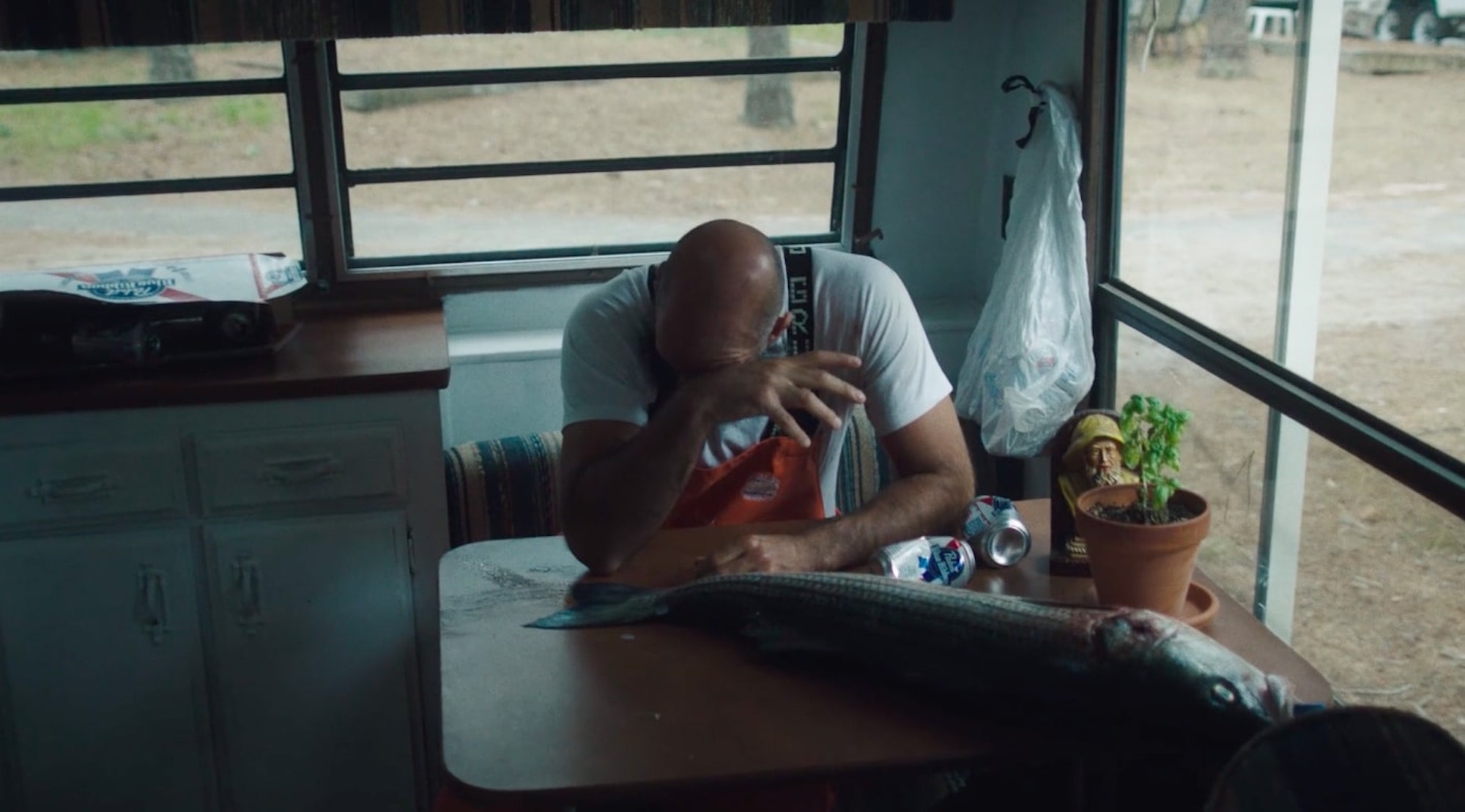
For me, it’s a classic portrait of masculinity and how men can put up these very defensive walls to shield themselves. This comes through in his combative relationships. How did you want to explore that through acting?
I talked to Greg about his character and having these layers that are just gradually stripped away, so in an argument he’s in full attack mode, this kind of fight or flight alpha male thing. Then he finds himself alone in his trailer. I remember saying to him: “This is a moment where you can be vulnerable.” We talked about him taking off his baseball cap so you can see he has a bald head. That was a very specific moment where he can be vulnerable. Then taking it a step further and pushing him to this house which becomes the soft underbelly of what he’s been hiding. I wanted him to slowly crumble and for us to get a vision of who he is.
There’s also this incongruous moment where he listens to All About That Bass.
I went to Nauset High School with Meghan Trainor so I felt that my love letter to Cape Cod wouldn’t be complete without hearing one of our very own pop stars on the radio.
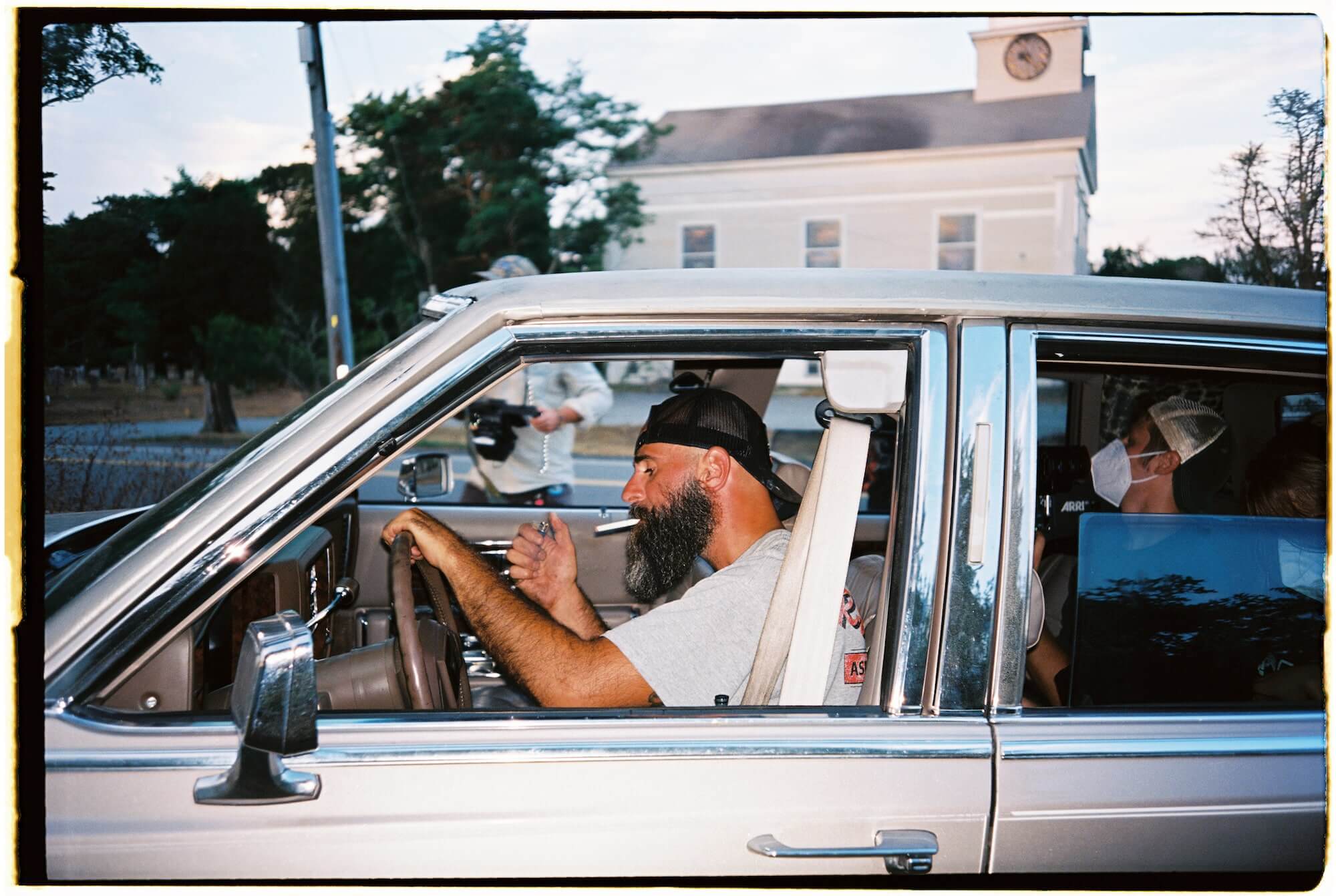



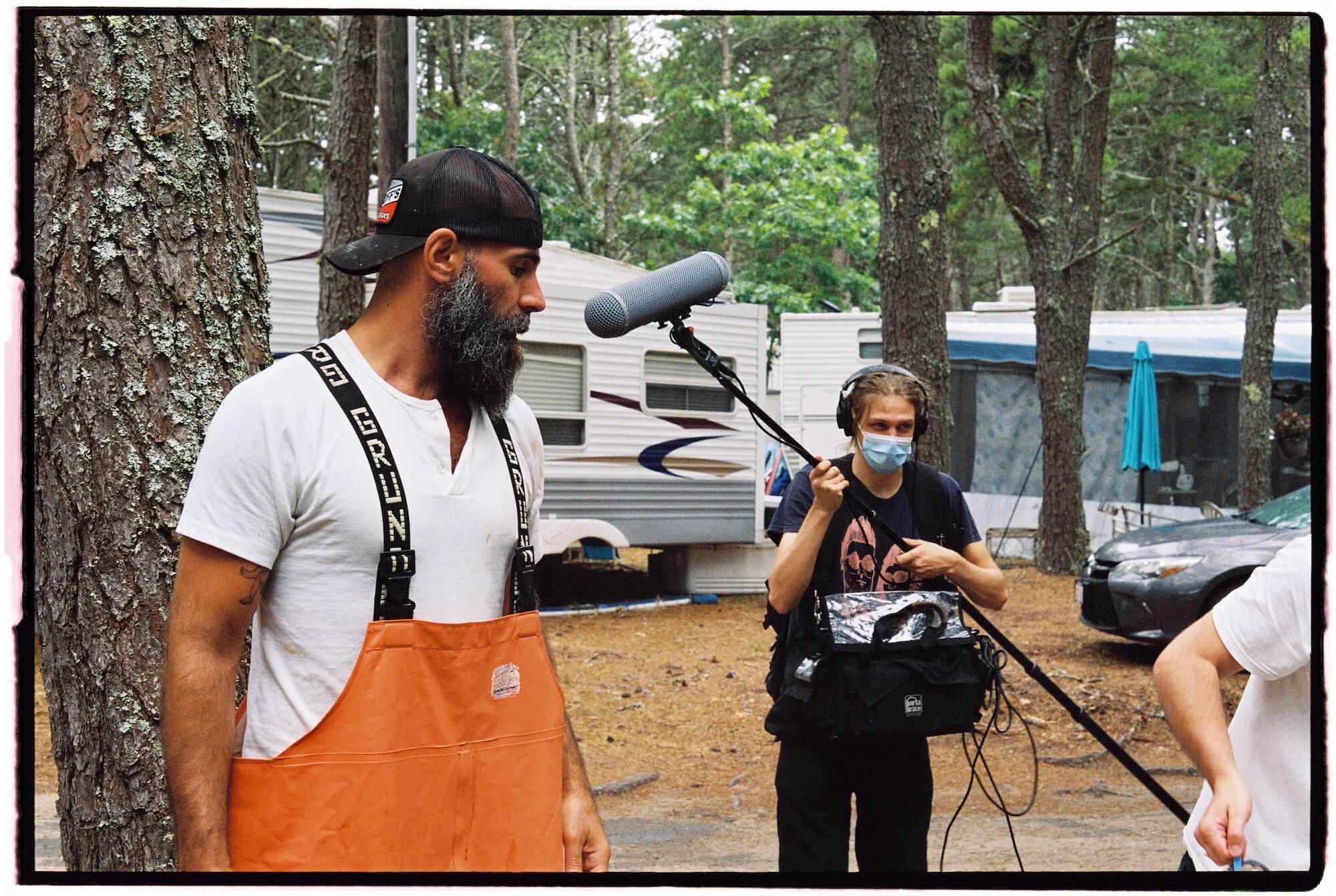

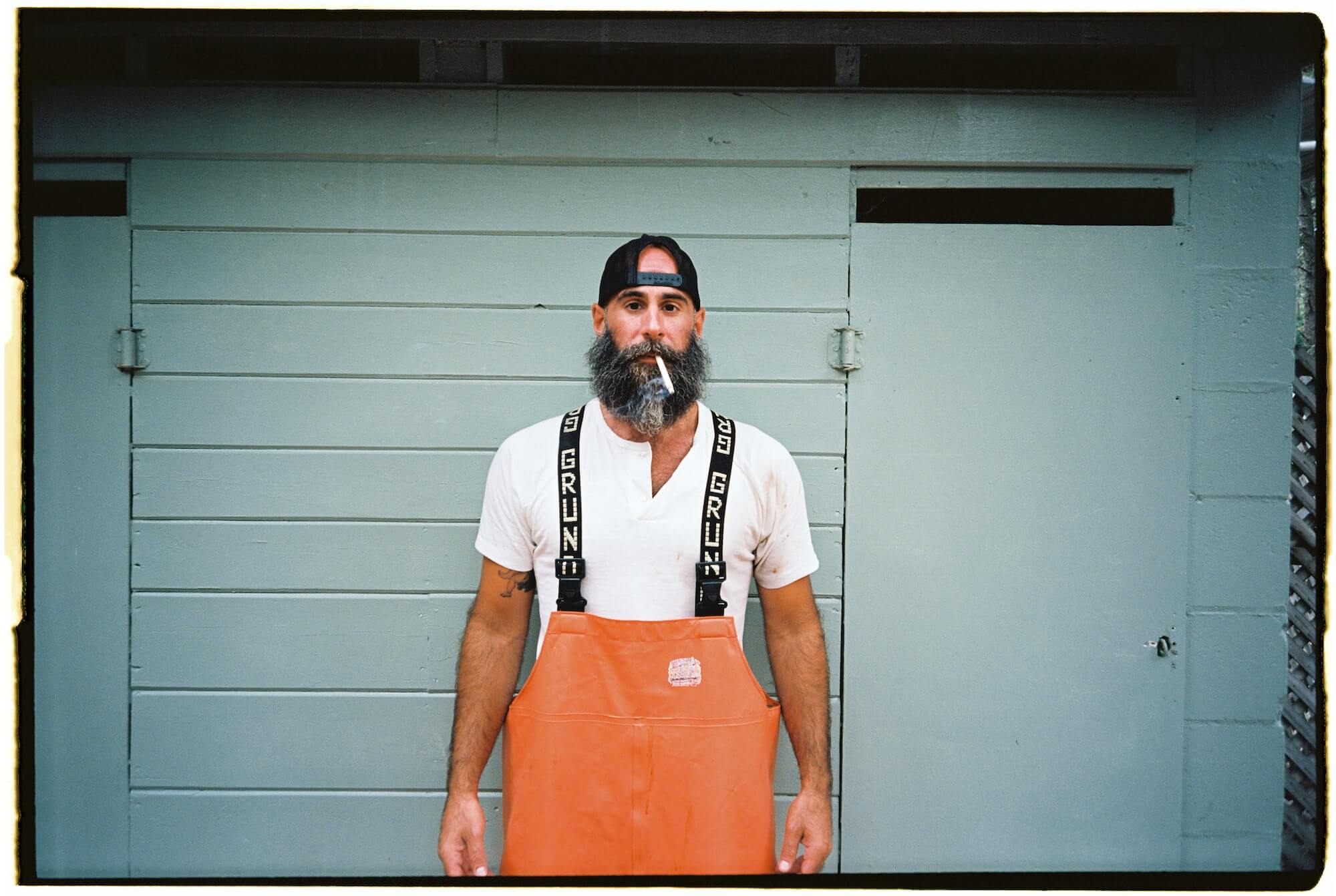

That poppy music is contrasted with the spare, haunting guitar music. It reminds me of Neil Young’s soundtrack to Dead Man Walking. Tell me about your collaboration with the guitarist.
I love that you said that because while we were on set I was playing that soundtrack really loudly. The reverb-heavy guitar just has this really beautiful watery feeling to it. I knew that the guitar was the right instrument because it goes along with this masculine feeling, the electric guitar being the quintessential, rock and roll, badass instrument. But then I wanted to use that instrument to infuse these different emotions into it.
I knew that the guitar was the right instrument because it goes along with this masculine feeling.
The process was interesting: I met up with guitarists Ian Hayes and Dan Barracuda in their Brooklyn studio. They played me different things and I wasn’t sure if it was right. I finally went through my emails and I had read this letter I had written to the main actor Greg Vrotsos about carrying the weight of our fathers. After I read that, the message sort of translated to them and the theme came together really organically: at the beginning of the score it’s just single notes, then little by little it builds and builds until we finally hear it together in one piece.
What are you working on next?
I’m in post right now on a horror short I just did. I’ve teamed back up with Amanda Seyfried, who I worked with on Holy Moses back in 2018. She plays a folk singing witch who traps men’s souls inside the bodies of animals on her farm. We’re almost locked on that.

